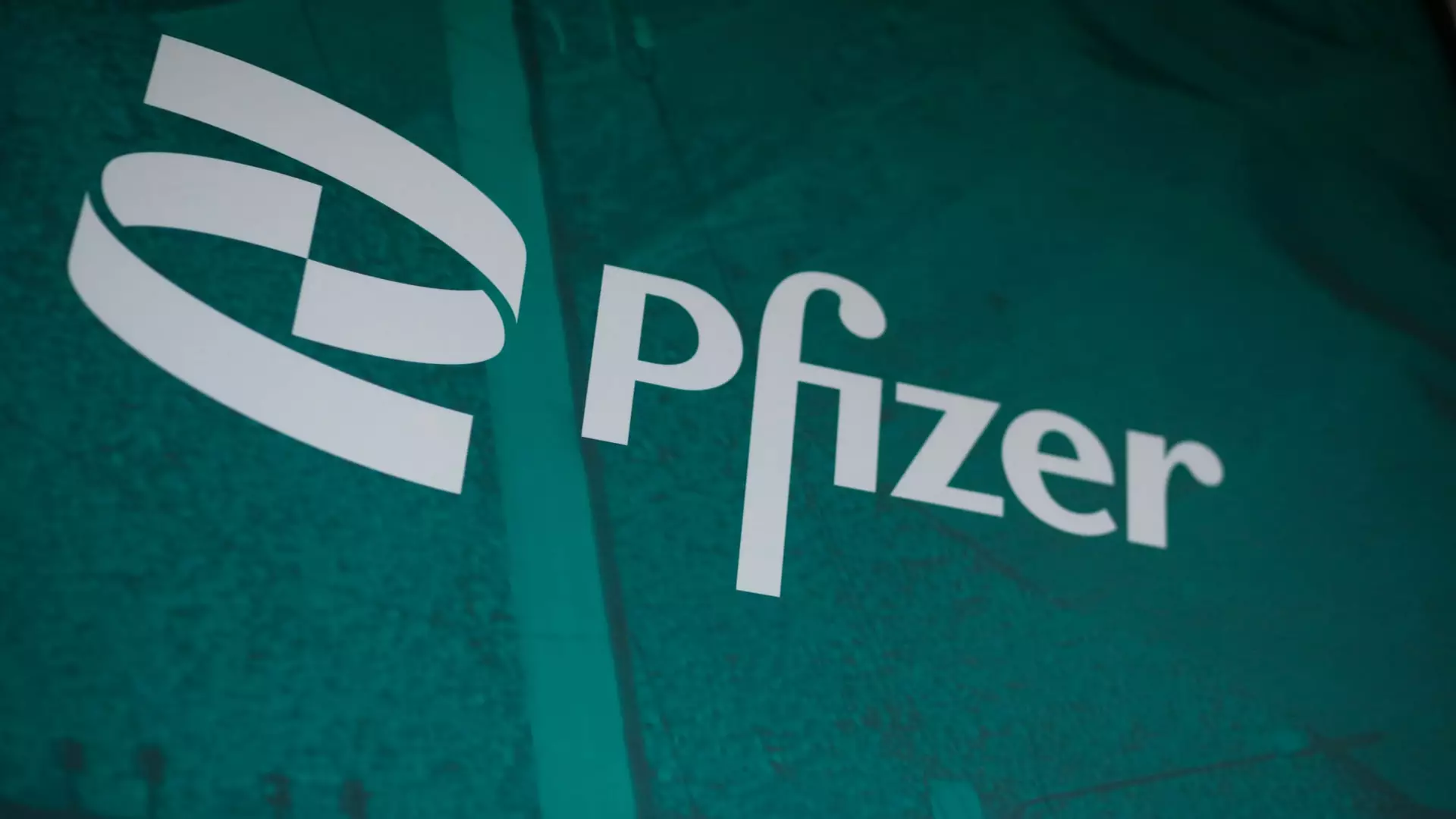Cancer cachexia is a debilitating condition that impacts a significant number of cancer patients, often compromising their quality of life and survival outcomes. Recent advancements unveiled by Pfizer regarding a monoclonal antibody treatment, ponsegromab, offer much hope in the field of oncology. The drug has shown encouraging results in a midstage trial, drawing attention from healthcare professionals and stakeholders alike due to its potential to become the first specific treatment for cancer cachexia approved in the United States.
Defined as an involuntary weight loss of more than 5% in cancer patients over a six-month period, cancer cachexia affects roughly 9 million people globally. The condition is not merely a consequence of reduced appetite; it results from complex metabolic changes that cause patients to consume insufficient nutrients, leading to significant muscle and fat loss. This depletion creates a cycle of weakness and fatigue that can severely hinder the ability to endure cancer treatments. Alarmingly, research shows that 80% of patients grappling with cancer cachexia succumb within a year following their diagnosis, highlighting the urgent need for effective interventions.
For cancer patients, experiencing cachexia can render treatment regimens less effective. The National Cancer Institute categorizes this syndrome with symptoms such as extreme fatigue, loss of function, and decreased quality of life. Such factors complicate treatment strategies and adversely impact survival rates.
Pfizer’s ponsegromab appears poised to address these debilitating challenges faced by cancer patients. In a noteworthy midstage trial presented at the prestigious European Society for Medical Oncology Congress, the drug showed a potential breakthrough with significant improvements in key areas: body weight, muscle mass, quality of life, and overall physical function among the patients studied. In this phase two trial, 187 participants diagnosed with non-small cell lung cancer, pancreatic cancer, or colorectal cancer were treated with varying dosages of ponsegromab, primarily designed to target elevated levels of growth differentiation factor 15 (GDF-15), known to adversely affect appetite and contribute to cachexia.
The trial results were promising, with patients receiving the highest dose of 400 milligrams showing a remarkable 5.6% increase in body weight compared to the placebo group. Even lower dosages of 200 milligrams and 100 milligrams demonstrated visible effects, reinforcing the drug’s potential in clinical applications. Charlotte Allerton, Pfizer’s Vice President of Early Development, highlighted the importance of these weight gains, noting that a greater than 5% increase is clinically significant for cancer cachexia patients.
The implications for patients utilizing ponsegromab extend beyond mere weight gain. The trial suggested improvements in appetite and physical activity, offering a glimpse of hope for those engulfed in the debilitating effects of cancer cachexia. Pfizer’s focus on addressing this incapacitating syndrome suggests a paradigm shift in how cancer care can be approached. By emphasizing sustained physical function and enhanced wellness, healthcare providers may enhance patients’ overall treatment experiences and ability to withstand aggressive therapies.
Furthermore, the company confirmed a lack of noteworthy side effects in its participants. This is particularly reassuring for patients who are often burdened by the toxicities of existing cancer treatments. The low incidence of treatment-related side effects (7.7% among those taking ponsegromab versus 8.9% in the placebo group) suggests a favorable safety profile, paving the way for potential widespread adoption if regulatory approvals are granted.
While Pfizer has not yet disclosed specific revenue projections for ponsegromab, the anticipated approval of this groundbreaking treatment could revolutionize standard care protocols for cancer patients battling cachexia. Plans are underway for late-stage development studies, with hopes to initiate these pivotal trials in 2025, addressing the critical need for regulatory approval.
The potential for ponsegromab extends beyond oncology; additional trials are ongoing targeting patients with heart failure who experience cachexia as a related concern. This opens doors for broader discussions around cachexia treatment methodologies in various patient demographics affected by chronic illnesses.
Pfizer’s developments signify a potentially transformative approach to treating a long-ignored condition impacting millions globally. The company’s commitment to improving patients’ quality of life by alleviating the distressing symptoms of cancer cachexia marks an important milestone in overcoming the challenges presented by this debilitating syndrome. As the drug advances through regulatory milestones, hope for a viable treatment option continues to grow.


Leave a Reply